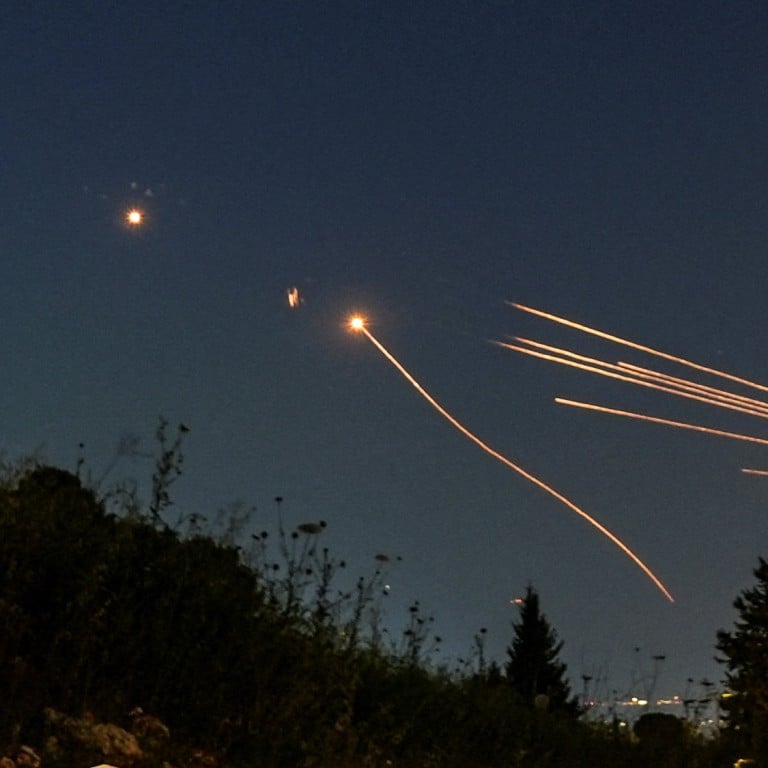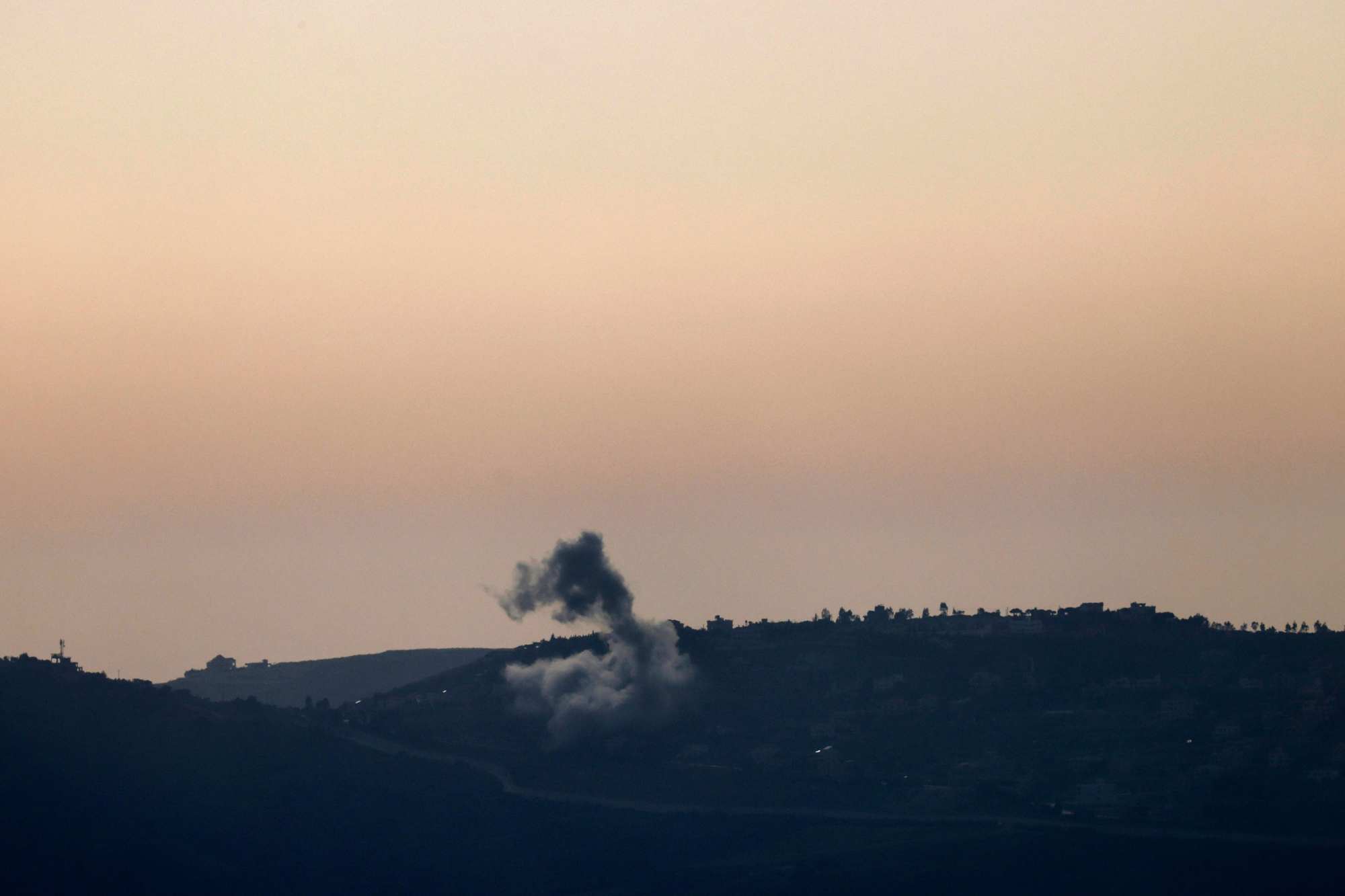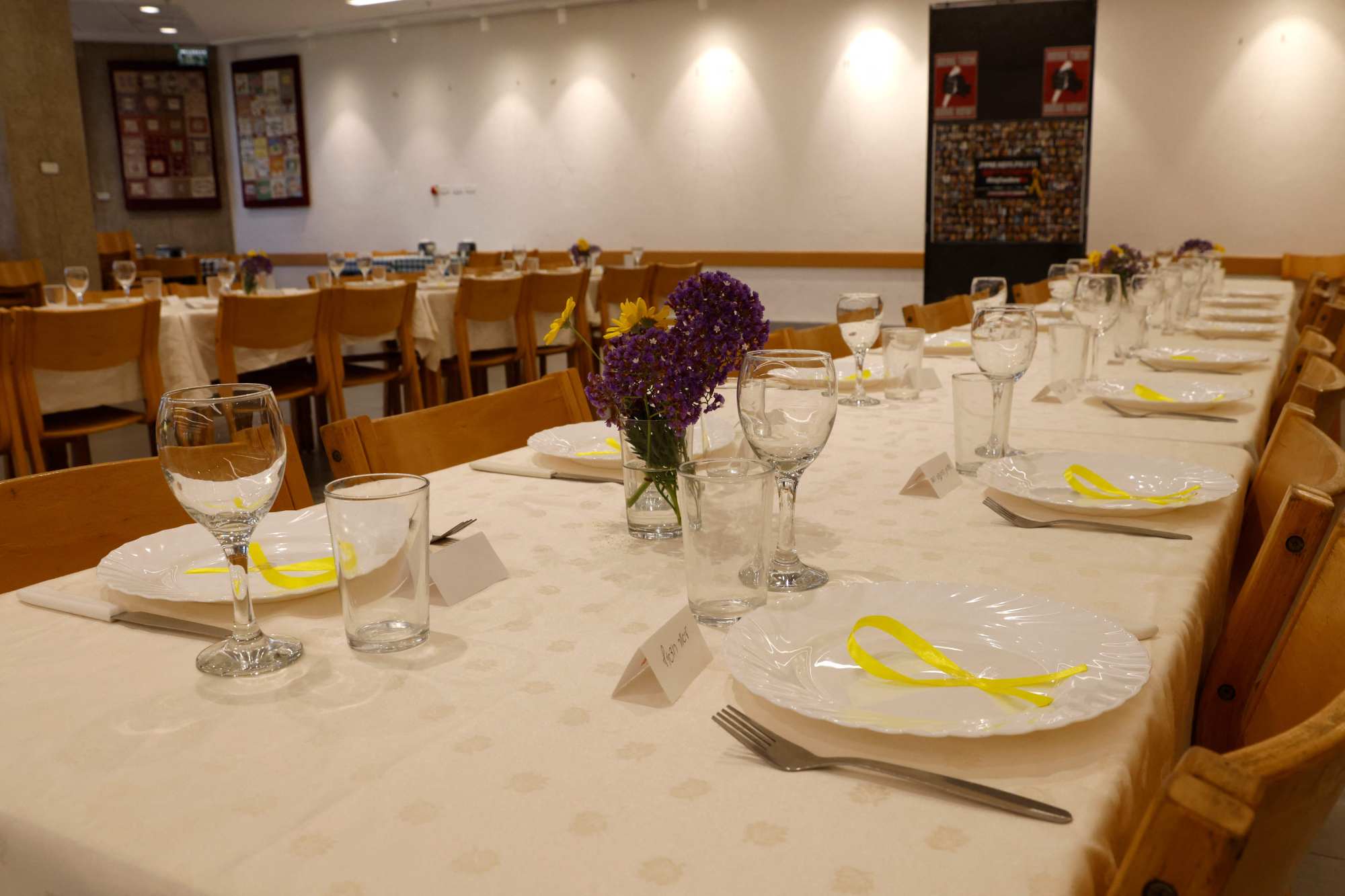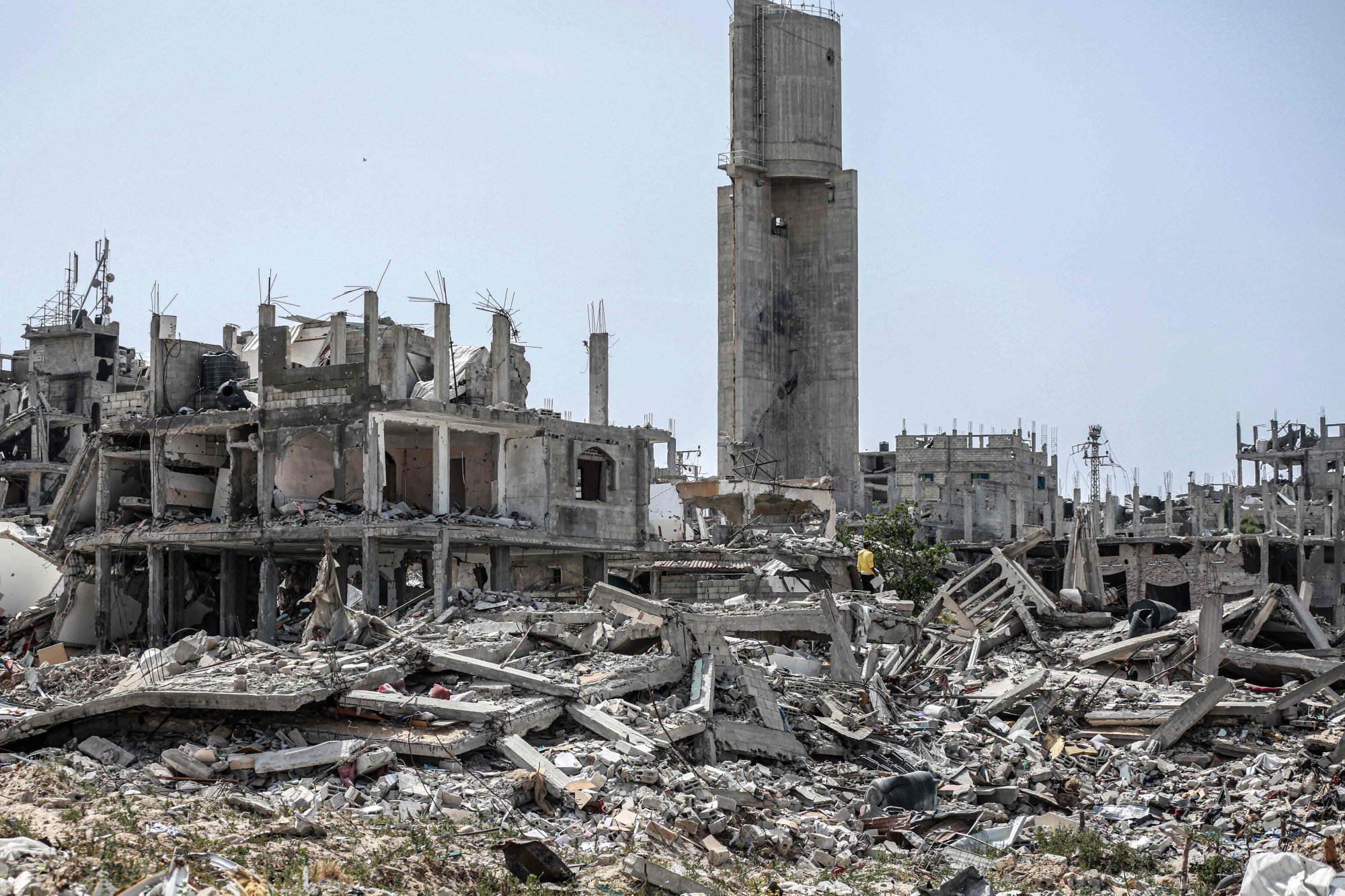
Hezbollah says ‘dozens’ of rockets fired at Israeli army HQ
- Hezbollah said attack was in retaliation for Israeli shelling and air strikes on Lebanese villages
- Since the beginning of the Gaza war, there have been near-daily cross-border exchanges of fire
Hamas ally Hezbollah said on Monday it had fired “dozens” of Katyusha rockets at an army headquarters in northern Israel in response to raids targeting villages in southern Lebanon.
Since Hamas’ unprecedented October 7 attack on Israel triggered war in Gaza, there have been near-daily cross-border exchanges of fire between the Israeli army and Iran-backed Hezbollah.
With Israel-Iran tensions at an all-time high, the Lebanese Shiite militant group has intensified its attacks on Israel military targets across the border.
A Hezbollah statement said it had bombarded “the headquarters of the 3rd Infantry Brigade of the 91st Division at Ein Zeitim Base with dozens of Katyusha rockets”.

This was in response to Israeli attacks on “southern villages and civilian homes”, most recently in Srifa, Odaisseh and Rab Tlatin.
Lebanon’s official National News Agency (NNA) reported Israeli strikes on the three villages on Monday.
Israel’s chief of staff approves continuation of the Gaza war
The Israeli military said “approximately 35 launches were identified crossing from Lebanon into the area of Ein Zeitim in northern Israel” and that no injuries were reported.
It said “troops struck the sources of the launches”.
Since October 7 at least 376 people have been killed in Lebanon, mostly Hezbollah fighters but also 70 civilians, according to an Agence France-Presse tally.
Israel says 10 soldiers and eight civilians have been killed on its side of the border.
Major General Aharon Haliva said he is still living with that “black day”.

Haliva is the first top Israeli official to step down for failing to prevent the Hamas attack which brought intense scrutiny to Israel’s government and military.
In a sign of the anguish still felt in Israel, families were urged to leave an empty seat at tables to represent a hostage being held in Gaza when the Jewish Passover holiday began on Monday night.
Israel estimates that 129 captives seized by Palestinian militants on October 7 remain in Gaza, including 34 who the military says are dead.
Hamas’ attack resulted in the deaths of 1,170 people in Israel, mostly civilians, according to an Agence France-Presse tally based on Israeli official figures.
Israel’s retaliatory offensive has killed at least 34,151 people in Gaza, mostly women and children, according to the Hamas-run territory’s health ministry.
A United Nations expert on Monday said Gaza’s health system has been “completely obliterated”.

Israel’s military has accused Hamas of using health facilities as command centres and to hold hostages – charges the militants deny.
Intense fighting raged in mid-February in the area of Nasser hospital in southern Gaza’s Khan Younis, and Israeli tanks and armoured vehicles surrounded it on March 26.
Civil Defence spokesman Mahmud Bassal told Agence France-Presse crews “are still recovering bodies from inside Nasser Medical Complex, and since Saturday bodies of nearly 200 martyrs have been retrieved”.
Civil Defence on Sunday initially reported that at least 50 bodies of people killed and buried at the hospital had been uncovered.
In early April the World Health Organization said another hospital, al-Shifa in Gaza City, had been reduced to ashes by an Israeli siege, leaving an “empty shell” containing many bodies.
WHO staff who gained access described corpses only partly buried, their limbs sticking out, and the stench of decomposition.
Israel has meanwhile lashed out at reports that its top ally and military supplier the United States was considering sanctioning the Israeli military’s ultra-Orthodox Netzah Yehuda battalion over alleged human rights abuses in the West Bank from before the war.
“At a time when our soldiers are fighting the monsters of terror, the intention to impose a sanction on a unit in the IDF (military) is the height of absurdity and a moral low,” Prime Minister Benjamin Netanyahu posted on X.
To mark the start of Passover, Netanyahu separately posted on X that “our resolve remains unyielding to see all hostages back with their families”.
Israel’s Netanyahu says will fight any sanctions on army battalions
He said the “days ahead will see increased military and diplomatic efforts” to secure their release.
Global opposition has mounted over the civilian toll of Israel’s Gaza offensive which has turned vasts areas into rubble and sparked fears of famine.
Israeli hostage supporters and anti-government demonstrators have protested to call for a deal that would free the captives, and for Netanyahu to quit.
As Passover began, they kept up their actions, burning a symbolic Passover table outside Netanyahu’s house in the coastal town of Caesarea.
Passover is also known in Hebrew as the “holiday of freedom”, but Yael Ben Porat, who joined the demonstration, blamed Netanyahu for the October 7 “disaster” and for failure to negotiate the captives’ release.
“This night is only bitter, no freedom,” she said.

.png?itok=arIb17P0)